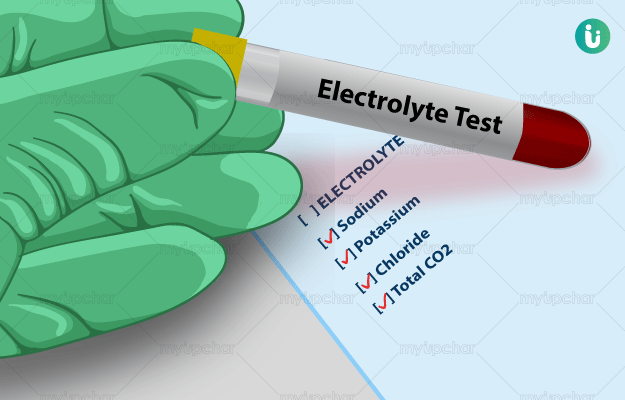What is Electrolytes test?
Electrolytes test is a diagnostic test that helps in determining the levels of electrolytes (salts and minerals) in the blood. Our body contains a lot of electrolytes viz sodium, potassium, bicarbonate, calcium, magnesium, phosphate and chloride.
Electrolytes play different roles in the body, e.g.:
- Potassium is an essential electrolyte for digestive and bone health. It helps to maintain the functions of muscles, heart and nerves.
- Sodium helps in maintaining the fluid volume in body. Hyponatremia (lower than normal levels of sodium) is the most common type of electrolyte imbalance and is characterised by confusion, delirium, nausea and headache.
- Chloride levels are affected by the levels of bicarbonate in body. Excess chloride levels may be observed in case of bicarbonate loss due to some conditions, e.g., diarrhoea.
- Calcium is vital in maintaining skeletal health, muscle contractions, hormone secretion and blood clotting.
- Magnesium is involved in neurological functioning and contraction and relaxation of muscles.
- Phosphorus is important for bones and teeth and about 85% of the total phosphorus in the body is present in bones and teeth.
- Bicarbonates help in determining the acid-base imbalance in body.
This test is also referred to as the electrolyte panel or “lytes” test.














